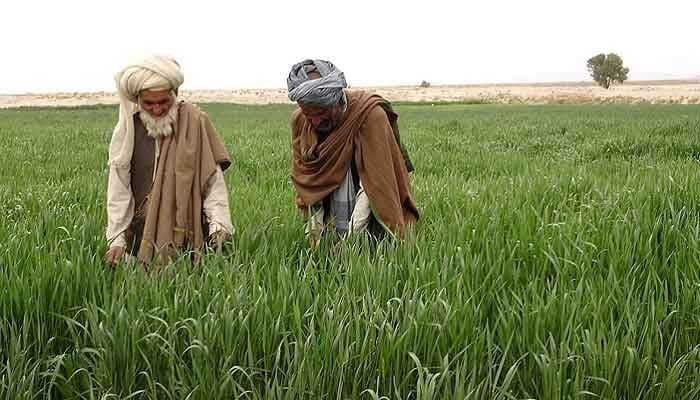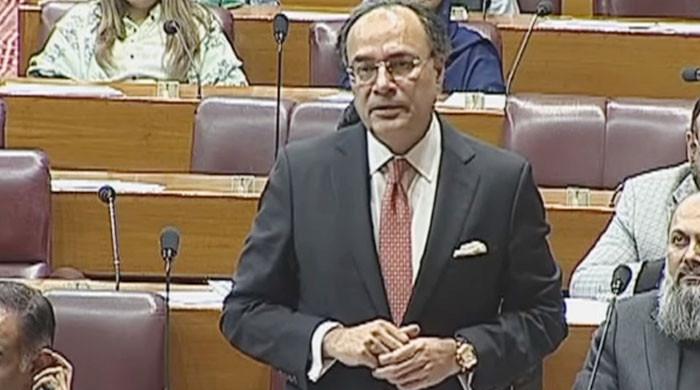IMF deadline: NTC asks provinces to lay agriculture tax bills by year-end
Body calls for need to realise full tax potential from under-taxed sectors such as real estate
December 05, 2024

- NTC's terms of reference will be expanded to include property tax.
- Unified rates on cards for harmonisation of GST for goods, services.
- Tweaks to AIT regimes mulled to align them with Federal Persona.
ISLAMABAD: The National Tax Council (NTC) has decided to table amendments to the Agriculture Income Tax (AIT) legislation in the provincial assemblies after failing to reach an agreement on harmonising goods and services tax (GST) rates as well as unifying property taxes under a single regime.
The NTC aims to present a draft of the negative list of GST on services by January 1, 2025.
Although, the Federal Board of Revenue (FBR) considered it a major success after the unified GST returns were implemented for Cellular Mobile Operators (CMOs), their input adjustments still faced problems. The unified GST return format for the whole telecom sector has been still a far cry.
However, on the AIT legislation, the Ministry of Finance argued that the International Monetary Fund (IMF) had so far raised no question on Punjab's legislation on AIT, where no specified rate was incorporated in the AIT amended law.
Sindh took the stance that the Sindh Revenue Board (SRB) has prepared its draft amendment bill and it will be a political decision to present it before the cabinet and lay it before the provincial assembly.
Khyber Pakhtunkhwa and Balochistan have also committed to present it before the assemblies by the deadline of January 1, 2025. On harmonisation of GST for goods and services, it has been decided that the unified rates will be introduced, so the executive committee of NTC will deliberate further to finalise its modalities.
On the negative list for GST on services, it will be replaced from positive to negative list and it will be implemented from July 1, 2025. However, the first draft will be presented before the NTC till January 2025.
The FBR and the provinces had sharp differences over the finalisation of the negative list of GST on services because a view persisted within the FBR that there would be many areas where the provinces might encroach the domain of the Centre by replacing the positive with the negative list.
When contacted, KP Minister for Finance KP Muzzammil Aslam said that it was the first meeting of NTC after almost 18 months while it was promised to hold the meetings frequently, at least one meeting every quarter.
The sources said the meeting discussed amending the Agricultural Income Tax (AIT) regimes to fully align them, through necessary legislative changes, with Federal Persona from January 1, 2025, with the collection for the second half of FY 2024-25 agricultural income in July 2025.
It also seeks a transition of services GST from a positive list to a negative list approach to combat tax evasion to take effect from the start of FY2025-26, aiming to collectively raise revenues from corporate tax in agriculture and GST on services combined with provincial tax effort in expanding additional areas of revenue collection, develop, implement and collect revenue under a common approach to property taxation, implement reforms to narrow tax compliance gap, including for GST.
The NTC's terms of reference will be expanded to include property tax and necessary legal and administrative changes to implement them.
According to an official statement issued by the Federal Ministry of Finance on Wednesday, a meeting of NTC was held at the Finance Division under the chairmanship of Federal Minister for Finance and Revenue Senator Muhammad Aurangzeb.
The meeting brought together key federal and provincial stakeholders to discuss critical matters related to tax reforms and harmonisation. The meeting was held in the context of the recently signed National Fiscal Pact between the Federation and the provinces, emphasising the need to realise the full tax potential from under-taxed sectors, particularly real estate, property and agricultural income.
The meeting was attended by Minister of State for Finance and Revenue Ali Parvez Malik, Punjab Finance Minister Mian Mujtaba Shuja-ur-Rehman, KP Finance Minister Aslam, Balochistan Finance Minister Mir Shoib Nausherwani, chairman FBR, chairmen of Provincial Revenue Boards and the federal and provincial finance secretaries.
Additionally, experts from the World Bank and other senior officials from the Finance Division and provincial finance departments were also present.
The NTC emphasised the importance of cohesive policy implementation, capacity building and robust stakeholder engagement to achieve sustainable reform goals. The finance minister reiterated the government’s commitment to fostering collaboration among all stakeholders for a unified and efficient tax framework.
Originally published in The News











